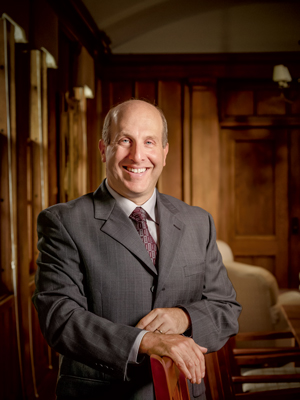Oberlin Alumni Magazine
Fall 2013 Vol. 108 No. 4
From the President
The Value of an Oberlin Education
Andrew Bongiorno, the late, great Oberlin professor of English and a Dante scholar, once said that the value of a liberal arts education cannot be judged on graduation day because it unfolds and blossoms over an entire lifetime.
As it always does, this magazine shows us in words and images how the lives of Oberlinians—younger, older, and in between—are unfolding and blossoming. The thread linking these disparate lives is the experience of studying at Oberlin.

Since becoming Oberlin’s president in 2007, I’ve had the privilege of speaking with alumni around the world and on campus. Many have told me they are still in touch with a faculty mentor. Others have remarked on how well-prepared they were when they enrolled in graduate school. They attributed that to the fact that at Oberlin the faculty encouraged them to seize opportunities to shape their undergraduate education in meaningful ways, whether through independent projects, internships, studying abroad, or collaborating on research.
During their undergraduate days, many students tend to take those things for granted. But after graduation, they soon learn how special their experience at Oberlin was.
For example, I received an email recently from a young alum who was a neuroscience major and a two-sport varsity athlete while at Oberlin. Now she’s flourishing in her first year at Harvard Medical School. She wrote to say that in conversations with med school classmates who had graduated from top Ivy League and West Coast universities, she discovered that they’d had a very different undergraduate experience—one in which much of the teaching was done by graduate students, and direct access to professors was hard to get. These students felt like they had had little say in their undergraduate education, that their voices and ideas weren’t respected.
The alumna wrote that she never once felt as though the faculty at Oberlin didn’t want her around, or as though she didn’t have agency and ownership over her projects. She was always treated as though she deserved to have a voice. Looking back, she said, she knew Oberlin was a special place when she was here. But she didn’t know how special until she left.
I’ve heard similar stories many times. Our students get deeply involved in the teaching, the learning, the research, the hard intellectual work, the practicing, the performing, and the wealth of co-curricular and extracurricular activities we offer at Oberlin. While on campus they may not realize that Oberlin’s teaching, mentoring, and research opportunities will enable them to excel in graduate school and in multiple careers. Or that we are preparing them to be informed, engaged citizens of their communities, and to make the world better for all.
But that is what we do. Oberlin’s mission as a unique liberal arts institution is to help our students have meaningful, considered lives. Lives that unfold, blossom, and benefit humankind long after graduation. With your support, Oberlin will continue to do so for generations to come.
Marvin Krislov
President, Oberlin College

Want to Respond?
Send us a letter-to-the-editor or leave a comment below. The comments section is to encourage lively discourse. Feel free to be spirited, but don't be abusive. The Oberlin Alumni Magazine reserves the right to delete posts it deems inappropriate.